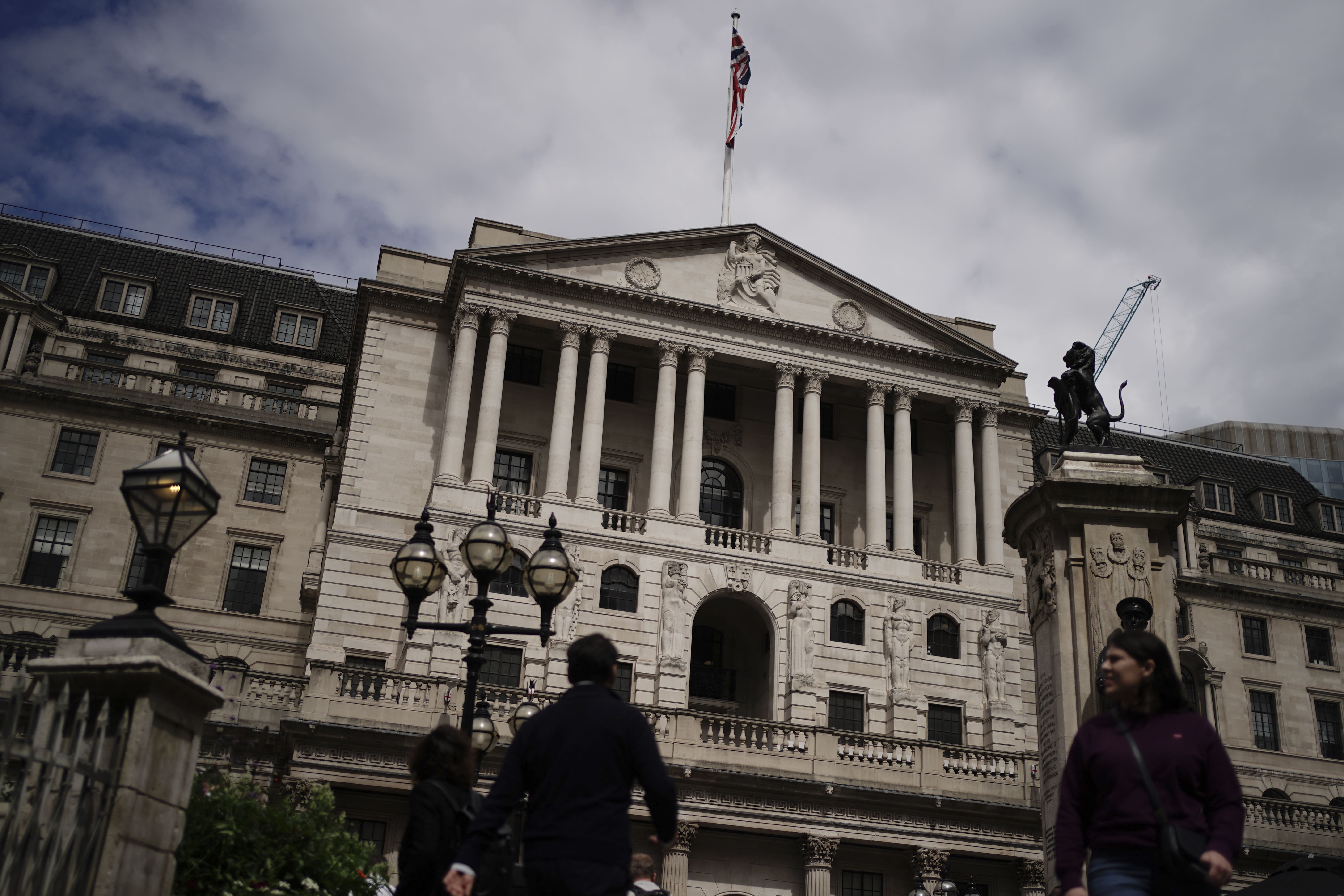Bank of England must ‘see job through’ on inflation, says chief economist
Huw Pill said he believed it was worth the risk of hurting growth and jobs through rate rises to ensure a ‘lasting return to target’.

Your support helps us to tell the story
From reproductive rights to climate change to Big Tech, The Independent is on the ground when the story is developing. Whether it's investigating the financials of Elon Musk's pro-Trump PAC or producing our latest documentary, 'The A Word', which shines a light on the American women fighting for reproductive rights, we know how important it is to parse out the facts from the messaging.
At such a critical moment in US history, we need reporters on the ground. Your donation allows us to keep sending journalists to speak to both sides of the story.
The Independent is trusted by Americans across the entire political spectrum. And unlike many other quality news outlets, we choose not to lock Americans out of our reporting and analysis with paywalls. We believe quality journalism should be available to everyone, paid for by those who can afford it.
Your support makes all the difference.Interest rate setters must “see the job through” on bringing high inflation back to target, the Bank of England’s top economist has said.
Speaking at a research conference in Cape Town organised by the South African Reserve Bank, the Bank’s chief economist Huw Pill said while there was the risk of raising rates too far and hurting growth and jobs, it was vital to ensure a “lasting return to target”.
The Bank has increased rates for 14 times in a row, to 5.25%, and is widely expected to vote for another hike at its next decision on September 21.
We on the MPC need to see the job through and ensure a lasting and sustainable return of inflation to the 2% target
Inflation has eased back to 6.8% from a recent eye-watering peak of 11.1% last October, but is still far from the Bank’s 2% target.
Mr Pill said: “The key element is that we on the MPC (Monetary Policy Committee) need to see the job through and ensure a lasting and sustainable return of inflation to the 2% target.”
He said there was a risk that interest rates are increased too high.
“Now that policy is in restrictive territory, there is the possibility of doing too much and inflicting unnecessary damage on employment and growth,” he said.
He added: “At present, the emphasis is still on ensuring that we are – in the words of the MPC’s last statement – sufficiently restrictive for sufficiently long to ensure that we have that lasting return to target.”
While inflation has fallen back sharply in recent months, so-called core inflation has remained “stubbornly high”, Mr Pill said.
There is still significant pressure on the Bank to continue with recent interest rate hikes to drag inflation firmly lower.
Experts at the Institute for Public Policy Research (IPPR) think tank warned earlier this month that there was “very real risk” the UK could fall into a recession as the flurry of rate hikes weighs on the housing market and consumer and business spending.
The Bank has forecast that inflation will fall to around 4.9% in the last three months of the year.
However, surging salaries are leading to fears that inflation will prove harder to rein in, with official data showing that wages grew at a record pace over the three months to June.
Regular pay growth, which excludes bonuses, reached 7.8% compared with a year earlier, according to the Office for National Statistics.
Nevertheless, wages were still 0.6% lower once inflation for the period was taken into account.